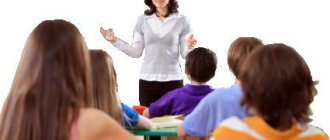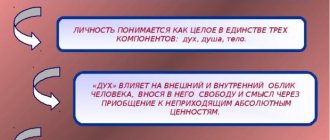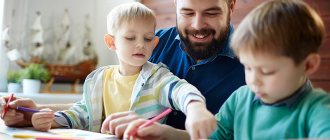Approximate planning on the topic “Legal Education”; 1-4 grades
Goleva Marina Alexandrovna
Primary school teacher
MAOU "Gymnasium No. 3" of Veliky Novgorod
Maksimova Margarita Vyacheslavovna
Primary school teacher
MAOU "Gymnasium No. 3" of Veliky Novgorod
Relevance
of the problem of legal education of children of primary school age
At primary school age, the beginning of a conscious perception of the world occurs. Therefore, this age is one of the favorable periods of legal education, in which the basic principles of humane life are laid. Unfortunately, at present, the proportion of mass legal educational work has decreased significantly. This work is carried out essentially only in connection with periodic election or other constitutionally necessary events. A new stage in the development of national statehood, the modernization of the educational system dictates the need to reassess traditional forms of legal education.
The purpose of this work is to show the methods and techniques used in the educational work of the gymnasium to form the legal consciousness of junior schoolchildren. Objectives: • substantiate the objectives of legal education; • show effective forms of legal education for junior schoolchildren.
Pedagogical foundations of legal education in an educational institution
Our gymnasium works according to the “Origins” legal education program, developed in accordance with the requirements of the concept of spiritual and moral development and education of the personality of a Russian citizen, which is the methodological basis for the development and implementation of the federal state educational standard of general education.
When developing the program, the developmental features of a child of primary school age were taken into account:
- participation in activities that are public in nature and social in content;
- expansion of the child’s sphere of interaction with the outside world, development of needs for communication, cognition, social recognition and self-expression;
- the child’s acceptance and mastery of a new social role as a student, expressed in the formation of the student’s internal position, which determines a new image of school life and prospects for personal and cognitive development.
The main objectives of the program are:
- Familiarization of students with legal acts of the state.
- Fostering respect for the laws of the country and convincing them of the need to comply with them.
- Promoting the development of students' cognitive and creative skills.
- Mastering the basic norms relating to the rights of the child, developing the ability to apply acquired knowledge in specific situations, instilling skills of law-abiding behavior, and the ability to protect one’s rights and freedoms in the prescribed manner.
- Nurturing love for parents and loved ones, studying and preserving family traditions.
- Promoting student socialization.
- Reducing risk factors leading to crime.
- Gaining experience in communication and relationships with peers and adults based on cultural and moral norms.
- Formation of a legal culture, system of values and relations appropriate to society.
Principles of work organization
in and outside of class with children
- control, self-control and self-assessment of behavioral activity
- systematic and consistent
- collective analysis and assessment
- personal example
- open dialogue
- open dialogue
- freedom of choice
- stimulation
- cooperation
- enthusiasm
- confidence
Main directions of work on legal education
I. Work with regulatory and guidance documents. Legal comprehensive education (individual and group form). Includes studying documents
- Law of the Russian Federation “On Education”,
- Federal Law “On the Basics of the System for the Prevention of Neglect and Juvenile Delinquency”,
- UN Convention on the Rights of the Child,
- Family Code of the Russian Federation.
II. Working with students. Includes:
- Individual explanatory and preventive conversations,
- Cool hours about moral education,
- Cool hours of legal orientation,
- Individual and group psychological consultations, surveys, seminars, trainings,
- Involvement in extracurricular educational and cognitive activities (in extracurricular activities, in the work of clubs).
III.
Organization of interaction between the class teacher and the social teacher, teacher council. Meetings with employees of the Ministry of Internal Affairs.
I V .
Visual propaganda. Includes
1. Exhibitions of thematic literature:
- “Human rights and children’s rights”,
- "Preventing bad habits."
2. Design of thematic stands:
- “Youth extremism: forms of manifestation, prevention”,
- "Helpline"
3. Poster competitions:
- “I don’t smoke – and I like it!”
- “NO to bad habits!”
V.
Working with parents. Includes
- Conducting parent meetings, consultations, conversations on legal issues
- Conducting surveys among parents.
- Open demonstrations of the educational process
- Carrying out joint events
- Individual consultation with specialists.
Sample program content for legal education
| Classes | Meaningful lines |
| 1 | Rights and obligations. Small Motherland. Flag of Russia. Know how to study, work, play together with others. Collectivism. Justice. I and my family. |
| 2 | Coat of arms and anthem of Russia. Legal culture. Personal integrity. History of the gymnasium. My family is my treasure. |
| 3 | The idea of patriotism in myths, fairy tales, legends. Friendship between children of different nationalities. Symbols of the Novgorod region. Customs and traditions of the residents of the Novgorod region. Ability to keep your word (responsibility, honesty). Legal protection authorities. |
| 4 | Patriots of our Fatherland. Symbols of Russia. Leaders of the Russian Federation, regional and district administrations. History of Russia and its native land. The concept of "compatriots". National characteristics of people's lives. Patriotism. Family tree. Economy. Personal and public property in human life. Offenses and their consequences for human life. |
The quality monitoring system includes:
- pedagogical observation;
- use of special diagnostic methods;
- testing;
- microstudies.
Expected results
of targeted legal education:
children should develop such an understanding of rights and civic behavior that:
— activates the social position of children, enriches their scale of values and morality;
— forms high moral personal qualities: activity, initiative, independence; the ability to freely exercise choice and make decisions;
- allows the child to behave correctly in nature and society, the child learns to resolve conflict situations in normative ways, taking into account the positions, desires, needs of other people, and also acquires the skills of voluntary control and management of his behavior;
— ensures a responsible attitude towards oneself and others, towards nature;
— awakens and improves interest in oneself, one’s inner world, the system of needs and interests, which serves as one of the psychological foundations of self-improvement.
Criteria for tracking program results
- relationships between children in a team;
- student self-esteem;
- motivation of actions;
- adaptation to school;
- psychological maturity;
- claims;
- anxiety;
- creative activity;
- aggressiveness;
- communication;
- interaction.
Program implementation:
This project has been implemented since the 2010-2011 academic year within the framework of the federal state educational standard of primary general education on the basis of the MAOU “Gymnasium No. 3” of Veliky Novgorod. There is a club called “Istoki” at the gymnasium.
The first year and a half of work on the legal education project showed a high interest of children and parents in this topic.
The level of development of the children's team is at a fairly high level. Psychological testing showed that more than 70% of children successfully completed the process of school adaptation; the children did not have feelings of anxiety or aggression. Children's self-esteem is quite high.
List of resources
- https://www.edy.ru/db/portal/obschee/index.htm
- Ioffe A.N. Active methodology is the key to success. / Civic education. International project material. St. Petersburg 2000 - P. 144.
- Usachev A. Universal Declaration of Human Rights for Children and Adults. – M., 1992
- Agapova I.A., Davydova M.A. We are patriots! Class hours and extracurricular activities: grades 1-11. – M.: VAKO, 2006
- Malenkova L.I. Education in a modern school. A book for teacher-educator. M.1999.








